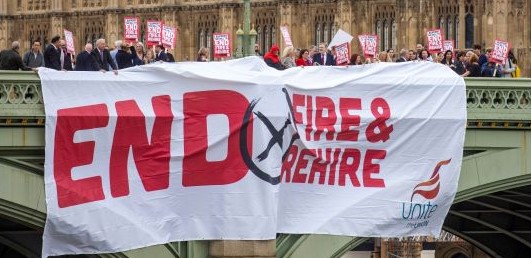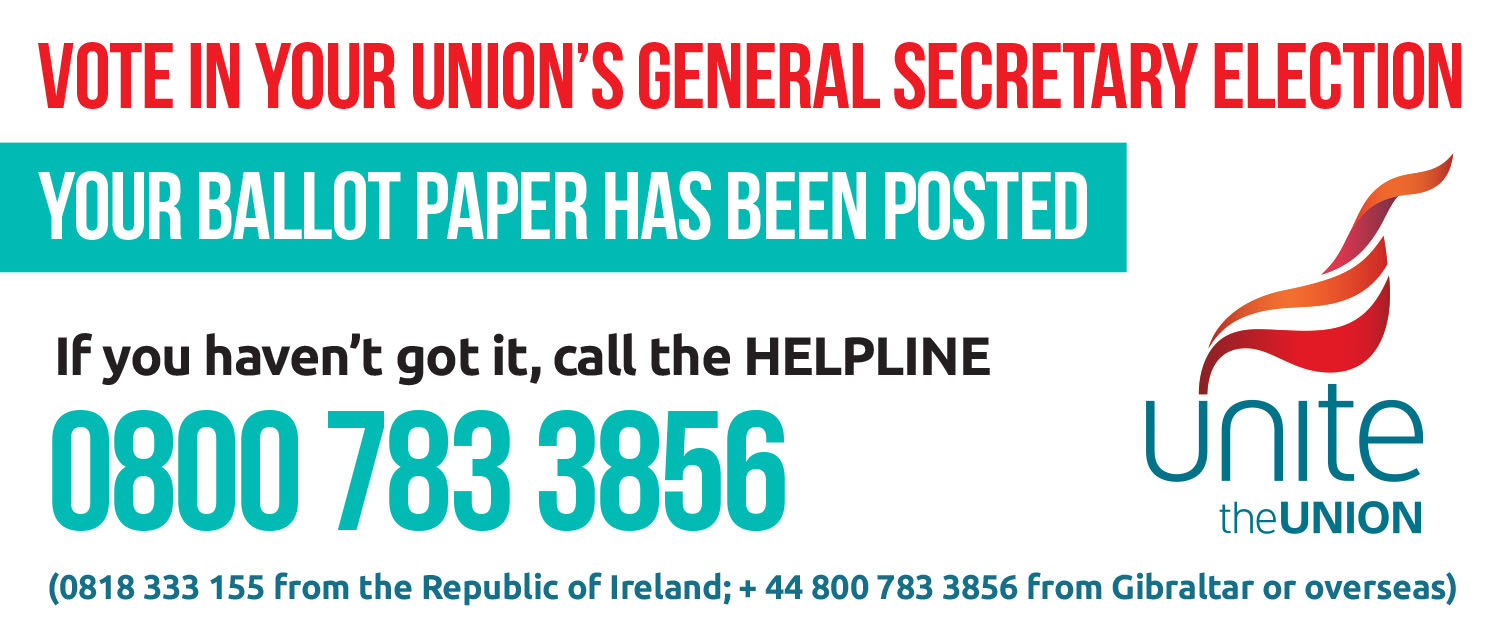Then and now
Preparing a speech to mark the 45 years since the release of the Pentonville Five, I was struck by what the case of the dockers imprisoned in the cause of trade union freedom then tells us about working life in Britain now.
I was a young shop steward in the Liverpool docks when Conny Clancy, Tony Merrick, Bernie Steer, Vic Turner and Derek Watkins were jailed in the north London prison for standing up to a government which was inflicting draconian restrictions on workers’ rights to strike and reducing job protections through the Industrial Relations Act.
Tory prime minister Ted Heath had responded to the dockers’ strikes with the imposition of a state of emergency, while the Act gave the government the power to sequestrate union assets, and to prevent mass picketing and secondary action.
The Pentonville Five were, and remain, a huge inspiration to me. They represented all that was good about the dockers in particular and working people more generally. They dared to test the Act and will always demonstrate the timelessness of the struggles we have to win, and that we must hang on to what is rightfully ours.
Freed within days by the official solicitor after hundreds of thousands of dockers and other workers downed tools, along with a reluctant TUC being persuaded to call a general strike, their action, and the instinctive responses by working people to a direct attack on their trade union organisations, defeated the Act and indirectly brought down the government.
Containerisation was central to the dockers’ strike that led to the wrongful jailing of the five. It was having a massive impact on jobs and the T&G was demanding not that it end but that container handling be done by organised labour. This was about casualisation and low pay (we call it zero hours today).
The only firm to refuse to come to an agreement with the union, Heatons, had moved containers to inland depots where they could be loaded and unloaded on the cheap. It obtained an injunction against picketing from the National Industrial Relations Court, which the Act had established, and it was their defiance of this that led to the arrest of the five.
Desperate, failing Tory government
The jailing of the Pentonville Five was the desperate, anti-worker, anti-trade union act of a failing Tory government, using a vicious piece of legislation to deny working people basic rights at work and the right to strike.
Just as a failing Tory government now has its Trade Union Act which seeks to bog unions down in red tape and administration costs, as well as erecting barriers to the fundamental right to strike.
The similarities between 1972 and 2017 don’t end there.
Back in 1972 Heatons didn’t just use the hated new Act against working people. It used private detectives to establish the names of rank and file union leaders. Just as the construction and other sectors continue to do.
Now Unite has issued high court proceedings to bring the “controlling minds” behind the blacklisting of workers to justice. And we are demanding a full public inquiry into contemporary blacklisting, new laws to make it a criminal offence and the introduction of public procurement rules to bar companies found to have blacklisted workers from bidding for public sector contracts.
The Pentonville Five fought to defend properly paid jobs, proper contracts, proper protections and union rights.
Just as we fight today for the decent, secure jobs and rights that our society and communities need.
In Wales, the French company CNIM, the main contractor on an ÂŁ800 million waste to energy facility, is refusing to comply with the industrial agreement, leaving our members, and those of the GMB, massively out of pocket.
CNIM, the lowest bidder for the North Wales Residual Waste Treatment Partnership, has refused to allow unions access to the site and to ensure that workers are paid via the National Agreement for the Engineering Construction Industry (NAECI) on the project. Workers could be paid rates 63.5 per cent below NAECI rates.
Tactics
These tactics are yet another example of the bargain basement approach to employment that encourages a deregulated race to the bottom trashing of wages, terms, rights and conditions, along with increasingly insecure work in the guise of zero hours contracts, bogus self-employment and agency labour.
We know we cannot rely on this Tory government to improve rights for millions of people in vulnerable employment situations – ministers have already shelved legislation on so-called modern working practices. That’s why Unite is fighting for them on all fronts, and taking a case in the employment appeal tribunal that could deal a major legal blow to bad bosses and agencies who use fictitious employment models to cheat workers out of their rights and hard-earned wages.
Pentonville reminds us that unions must never stop challenging corporate power and the governments that collude with it.
I made a few predictions before the general election, the runaway highlight of 2017 for me. I was right about a few. But rather than use this column to crystal gaze on 2018, I make a resolution instead.
That when the festive season is behind us, I and my union will return ready and determined to help fight for fairness and justice at work and return a Labour government so desperately needed. Please join us.
This comment first appeared in Tribune, December 15
 Like
Like Follow
Follow


